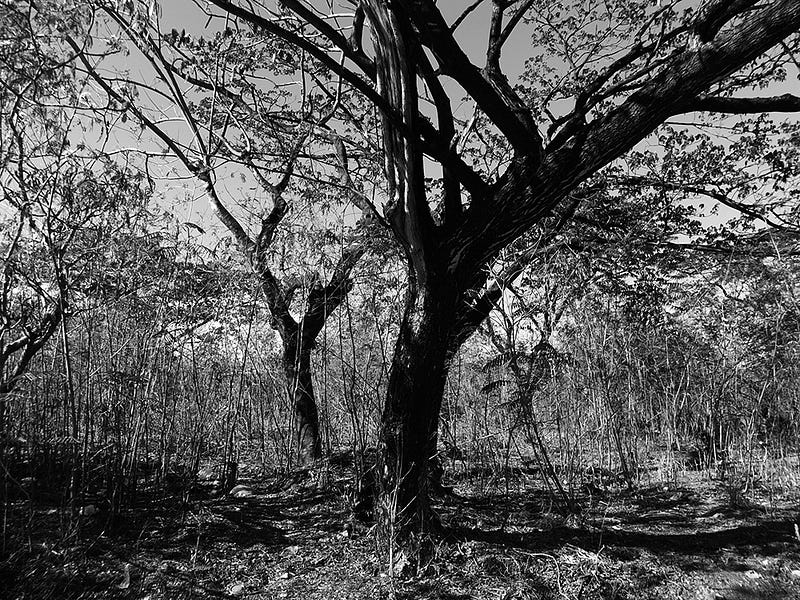A Parallel Planets piece by Unknown
Parallel Planets presents
November Nocturne: Veiled Realities
Story & Photos by Julia Escaño
* * *
We only recognize the tangible. What we can touch, what can touch us; what we can see, hear. We only recognize as real that which can shove themselves in our face, thereby forbidding us to deny their existence. But what if that which was never tangible suddenly makes itself so? Then a veil is lifted from our eyes, darkness is removed, and what was black becomes flooded with light. Or is it light?
~
They called him Apo, “elder”. They said he was a fire
elemental, the lord of the elevator shaft, the king of the abandoned hospital
at Clark Air Base, Angeles, Pampanga. He was the highest being there, and all
the others bowed down to him. We bowed down to him, asking for permission to
hold a media event and show premiere in his domain.
Apo guarded his home with soundless, skin-crawling ferocity,
but he welcomed us with open arms as our van rolled into the jungle of the
driveway. Weeds taller than man lined the path, slowly encroaching upon the
broken concrete, grass and wildflowers seeping through the cracks. Tree
branches met as an overhang, blocking the bright early morning sun, and casting
our path in shadow. These greens don’t
see humans much, the air reeked of it. And it was thick with something else
too.
My heart was pounding; hairs on end. I felt tens of eyes looking at me, except I couldn’t see them back. My phone beeped. It was my dad asking why I just called.
“I didn’t call” I replied
“Just now you did. 9:45am. It’s on my log.”
I didn’t call. I checked my call log for short-term memory
loss. Last call was made last night. No calls since.
“Apo is a fire elemental,” Chiqui, a member of the Esoteric
Society of the Philippines, said at a meeting a few days back. “Fire elementals
like electronics.”
Thus, despite a day’s worth of malfunctioning gadgets and
circuitry which had all been functioning well a mere hour ago in Manila, it
didn’t come as a surprise that when the big premiere happened, Apo decided to
play his hand. A catchy beat filled the fast darkening hospital, now only lit
with strobes and candles, as we played the show’s DVD. Then, as the narrator
spoke, the video’s audio slowed to an ungodly pace, giving the speaker’s voice
such a dark, otherworldly quality that some of the audience got up from their
seats and ran out.
The tension was palpable in our little protected square in
the middle of the thick veil of darkness. Thankfully when we played the video
again everything went without a hitch. When the show ended people were only too
eager to leave, the heavy blackness of the abandoned hospital getting too heavy
to bear.
Over dinner all the guests started exchanging thoughts and
stories. The cameramen of a network covering the event reported that their
cameras ceased to function at the venue; with the only functioning camera
recording, but the footage not actually moving. Digital cameras were being
passed around, each showing different faces humans have probably rarely seen
before. Seemingly random shapes floating in mid-air stood behind the subjects,
but looking the camera’s way nonetheless. A child and mother reflected in the
puddle by the elevator shaft. Vague shapes standing beside columns.
At the end of the night, half of the journalists booked to
stay at The Holiday Inn decided to leave back for Manila. The company promoting
the show shared one bedroom between eight people. And I shared a room with my
team mates despite having a room to myself.
Weeks and months afterwards when we see each other, the
topic of the Clark experience still resurfaces, with each person documenting
their individual eye-opening experience. In our eyes, the existence of that
plane cannot be questioned anymore. None of us ever want to go through anything
like it ever again, and that tangible, palpable fear, is what shed light upon
the darkness of that veiled reality.
* * *
Editor's Note: This feature is a part of our "black" theme, November Nocturne. To share your work on Parallel Planets, click here to know what we're currently looking for. You may also read more from Julia Escaño.


.jpg)






















